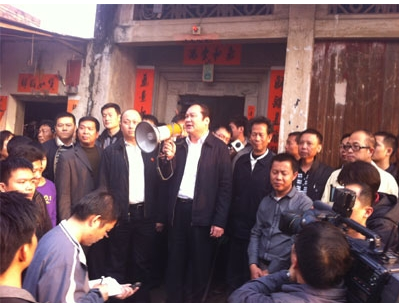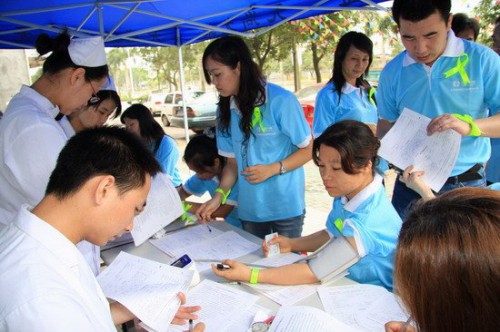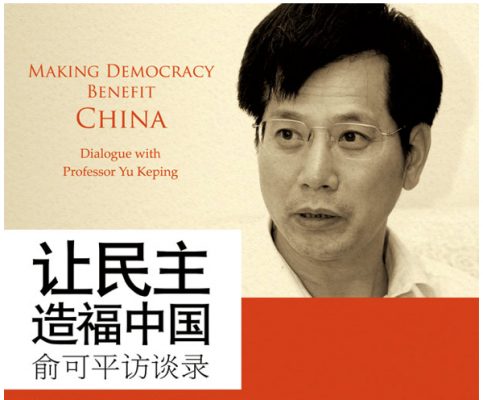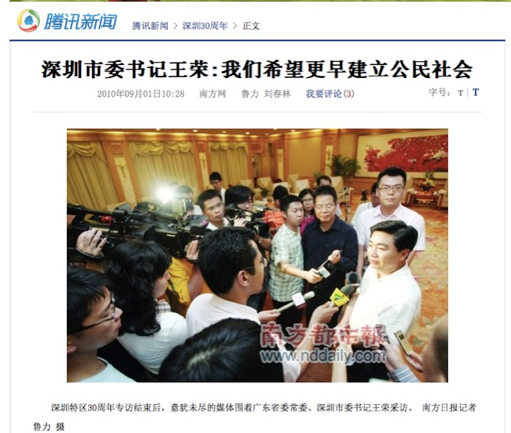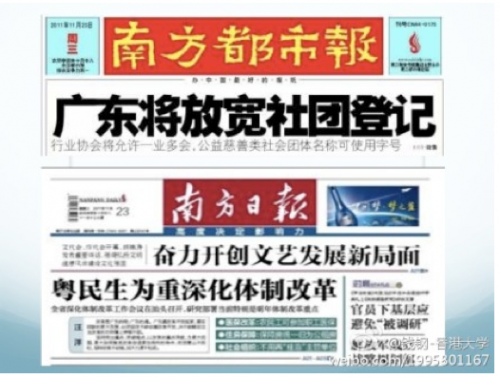At the time there were reports in both in the Beijing Youth Daily and Hong Kong’s Ta Kung Pao:
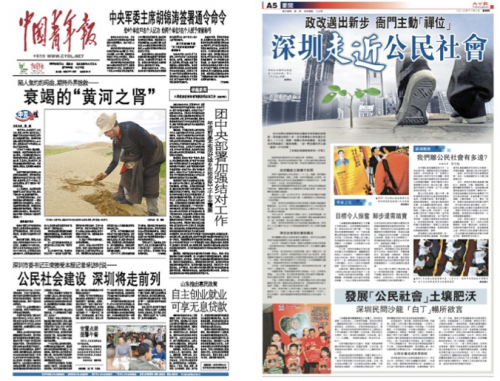
Nevertheless, at the very same time that Premier Wen Jiabao’s discussion of political reform was meeting resistance within the Party and political reform became a taboo issue in the media, Shenzhen’s experiments in “civil society” came to an abrupt halt.
At the end of 2010, the top Party leadership in Shenzhen submitted a report to leaders at the provincial level in which they introduced the work they had done in Shenzhen to build civil society. They assumed that their breakthrough work on this front would be welcomed by Wang Yang, the top Party leader in the province, who is one of the chief contenders now for entry into the powerful Politburo Standing Committee. They were reportedly sorely disappointed, however, as the report brought fierce criticism from Wang Yang.
The following is a report from Hong Kong’s Apple Daily on Wang Yang’s response to efforts in Shenzhen.
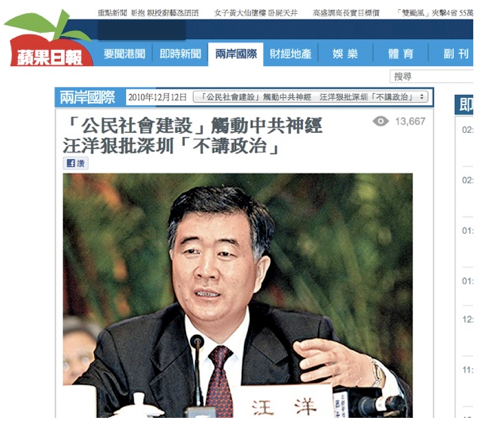
The second line on the Apple Daily headline reads, “Wang Yang Staunchly Criticizes Shenzhen: ‘Don’t Talk Politics.'” Wang Yang’s “politics” reference here points to a deep division within the higher levels of the Party over so-called social construction. Hardliners within the Party have an animosity toward the idea of civil society.
For example, in a May 2011 article published in the Party’s Seeking Truth journal, Zhou Benshun, secretary of the Party’s Central Politics and Law Commission, viciously attacked the idea of social organizations working independent of the government. Zhou said China had to avoid the “pitfall of ‘civil society’ designed for us by certain Western nations.”
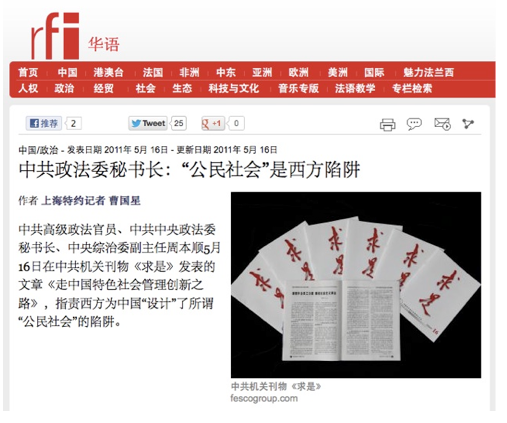
Lately, some people have had two misunderstandings about social management overseas. The first is the idea of ‘small government ‒ large society,’ that the bulk of social management should be taken on by society. In fact, not all developed nations follow this ‘small government ‒ large society’ model, and quite a number of large nations have large governments with the government taking on the principle tasks of social management. Second is the idea that social organizations are a ‘third sector,’ independent of the government and of the social management system. In fact, the vast majority of nongovernmental organizations overseas have government backgrounds, and all are under the effective management of the government. In our country, we must properly regulate conduct in fostering and developing social organizations, first putting ‘safety valves’ in place, thereby preventing the propagation of social organizations with ulterior motives.
In Chinese political lingo, “ulterior motives” are often ascribed to groups or individuals that the Party sees as undermining its leadership, including foreign organizations. Wang’s remarks are in fact quite typical of the xenophobic conservatism generally shown by senior leaders on China’s Politics and Law Commission.
In 2011, the term “civil society” became highly sensitive in China and a number of related bans were issued by the Party’s Central Propaganda Department to the media. In response, more professionally inclined commercial media wanting to explore this general topic used instead the phrase “folk society,” or minjian shehui. Even during this sensitive period, a number of Party officials wrote their own articles dealing with related issues under the umbrella of “social construction.” And even as Wang Yang warned Shenzhen officials against talking about “civil society,” he promoted a number of “social construction” initiatives in Guangdong.
In November 2011, Guangdong announced that it would relax registration rules for so-called mass organizations, generally including associations, federations and charities closely aligned with the government. According to the new rules, taking effect on July 1, 2012, social organizations can now register directly with the Ministry of Civil Affairs ‒ that is, without their application having the sponsorship of a government institution. The rules also paved the way for greater competition by allowing the registration of multiple organizations serving a particular interest or group. Wang Yang said that any activities social organizations could “handle and manage well” would be entrusted to them.
From September to December 2011, the residents of a small village in northeastern Guangdong called Wukan staged a mass rights defense action. Angry over the sale of their land, for which they received no compensation, the villagers ran their local officials out of town and dug in for a long standoff, as they demanded that the government address their concerns. The conflict, now known widely as the “Wukan incident,” resulted in the death of one village-appointed representative, and was only resolved after the intervention of a special “work group” appointed by provincial leaders to negotiate with the villagers.
